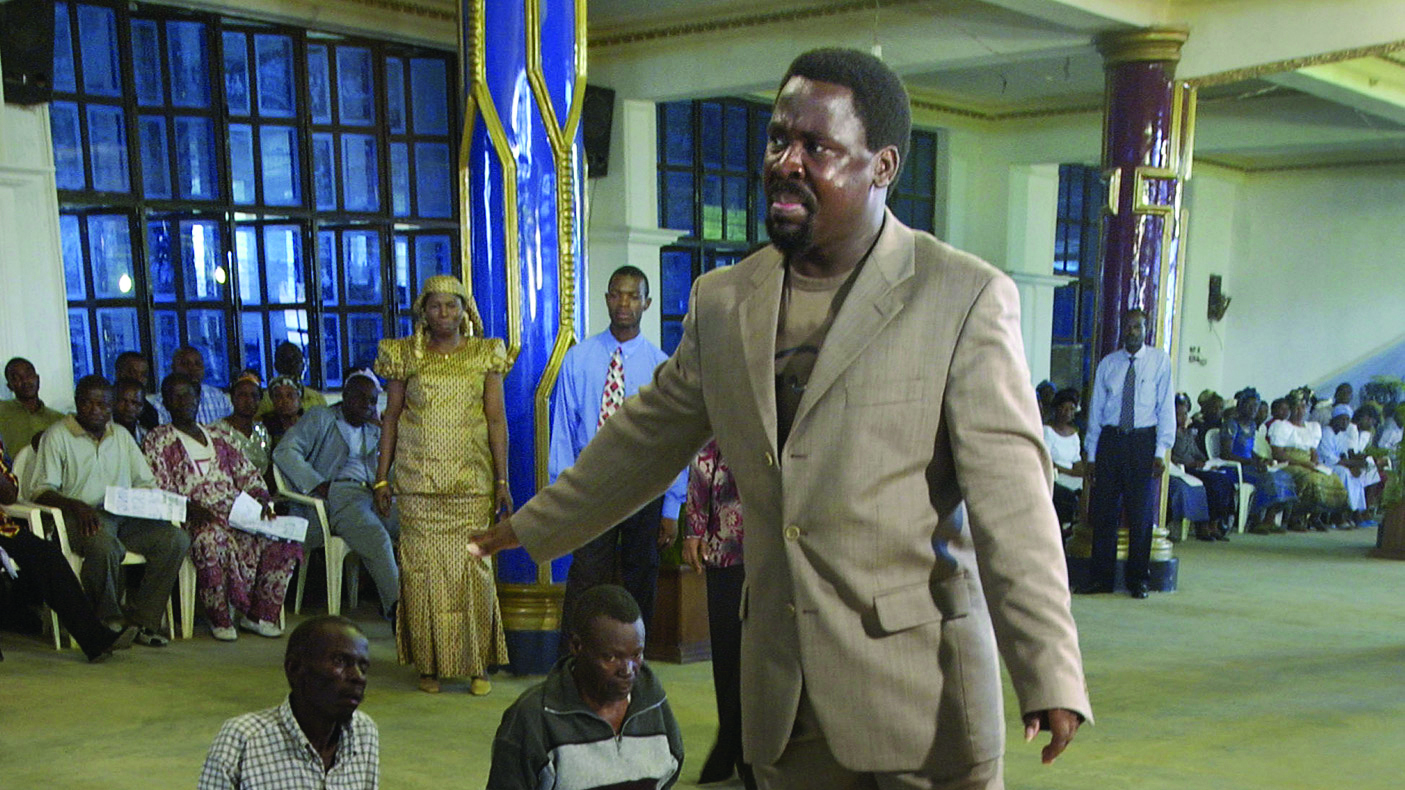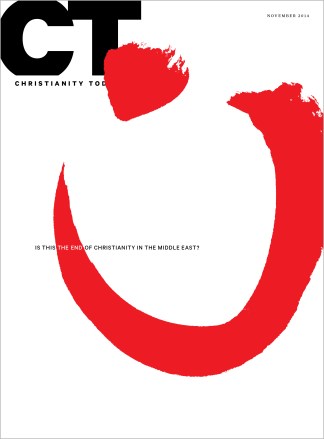When the deadly Ebola virus appeared in Africa’s most populous country this summer, one of the first people Nigerian health officials turned to was a megachurch pastor.
Temitope Balogun (T. B.) Joshua and his Synagogue Church of All Nations (SCOAN), which boasts 50,000 weekly worshipers, are a continent-wide phenomenon. Zimbabwe’s tourism minister recently cited statistics that 60 percent of Nigeria’s tourists visit SCOAN to explain why the struggling nation was betting big on church tourism. One tragic piece of evidence: When a SCOAN guesthouse collapsed in September and killed 115 people, 84 of the victims were from South Africa.
Many are drawn by Joshua’s bold claims of healing powers, spread by his Emmanuel TV empire. People have died in stampedes seeking his “anointing water,” including four in Ghana last year.
So the Lagos State health minister visited SCOAN and asked Joshua to publicly discourage Ebola victims in Liberia, Guinea, and Sierra Leone—where the highly contagious virus has killed more than 3,000 people—from seeking his healing.
Joshua obliged and issued a warning: “What makes you a good citizen makes you a good Christian. … Obey the law of your land by not crossing the borders of your nation with Ebola virus.”
He then airlifted more than 4,000 bottles of anointing water to Sierra Leone, explaining that it contained the power of God and could heal Ebola. (Meanwhile, 60 Zimbabweans who visited SCOAN were under observation by health officials, who asked other citizens to suspend such trips.)
Spiritual and medical ailments are inextricably linked in Africa, says J. Kwabena Asamoah-Gyadu, professor of African Christianity at Trinity Theological Seminary in Ghana. For many Christians, Joshua is the charismatic “revealer of secrets” who can diagnose supernatural ailments and their causes.
“Once the disease is spiritualized, its solution can only come from the man or woman of God with the power to deal effectively with evil,” he said. “Joshua is seen as such a man.”
Joshua, among Nigeria’s wealthiest pastors, has been refused membership in the Pentecostal Fellowship of Nigeria and Christian Association of Nigeria because of unorthodox doctrines. Gideon Para-Mallam, regional secretary of the International Fellowship of Evangelical Students, dismisses Joshua as an “imposter.”
But faith healing like Joshua’s is practiced in most African churches, says Candy Gunther Brown, editor of Global Pentecostal and Charismatic Healing. “It’s not a specialty ministry like it is in the United States,” she said. “It is a characteristic of African Christianity, whether it’s an Anglican, Presbyterian, or Pentecostal church.”
Faith healers at times clash with the medical community. Nigerian pastor Ituah Ighodalo garnered criticism after claiming that God’s anointing, the words of Jesus, and the laying on of hands would cure Ebola. He later explained he was not trying to encourage physical contact with Ebola patients but attempting to highlight Jesus’ healing power.
Aiah Foday-Khabenje, president of the Association of Evangelicals in Africa, emphasized the material nature of the outbreak. “We should not say this is a result of sins of the affected nations or persons,” he said. “It is just one of the challenges of this fallen world.”
However, it’s rare for the sick to only rely on medicine, said Brown. “The norm is pluralism and experimenting with whatever will help—even when that means crossing religious traditions and combining religions and medicine.”
The striking growth of Christianity in Africa—from 5 to 48 percent of the continent’s population over the past century—is closely linked to the popular appeal of divine healing, said Brown.
“It’s a question of which spiritual source of power we are going to look for,” she said. “There’s the perception that Christianity works better than any of the alternatives.”










